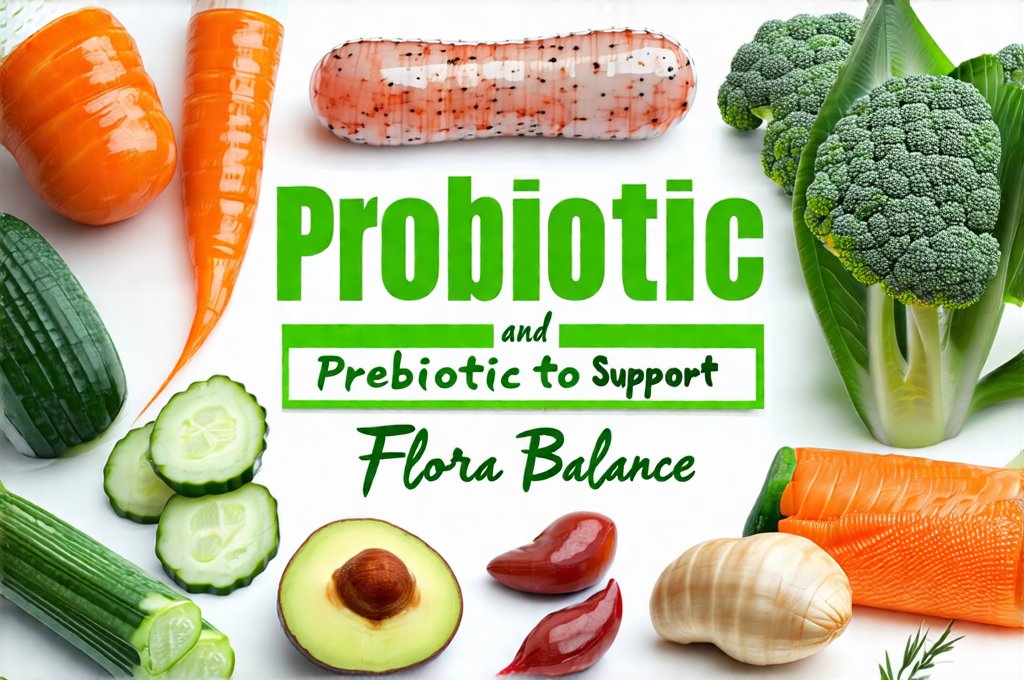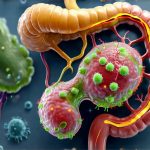Our digestive systems are complex ecosystems, teeming with trillions of microorganisms – bacteria, fungi, viruses, and more – collectively known as the gut microbiota. This intricate community plays a pivotal role in overall health, influencing not only digestion but also immunity, mental wellbeing, and even chronic disease risk. For decades, we viewed these microbes largely as potential pathogens to be eradicated. However, modern science has revealed that a diverse and balanced gut microbiome is essential for maintaining optimal health, acting as an internal guardian against illness and supporting countless bodily functions. The relationship between our bodies and these microscopic inhabitants is symbiotic; we provide them with a home and nourishment, and in return, they diligently work to keep us healthy.
The key to nurturing this delicate ecosystem lies in what we eat. Dietary choices profoundly impact the composition and function of the gut microbiota. While eliminating harmful bacteria is sometimes necessary (like during an infection), consistently disrupting the balance through poor diet or excessive antibiotic use can have far-reaching consequences. Thankfully, we can actively cultivate a flourishing microbiome by incorporating specific foods that act as fuel for beneficial bacteria – these are known as prebiotics and probiotics. Understanding the difference between them, and how to strategically include both in our diets, is fundamental to achieving lasting gut health and reaping its numerous benefits. This isn’t about restrictive dieting; it’s about making informed choices that support a thriving inner world. You can even learn more about combining warm liquids and light meals for better digestion.
Probiotic-Rich Foods: Introducing Beneficial Bacteria
Probiotics are live microorganisms that, when consumed in adequate amounts, confer a health benefit on the host – meaning us. Essentially, they’re beneficial bacteria that directly populate our gut, bolstering its defenses and improving digestive function. Unlike prebiotics which feed existing bacteria, probiotics add new soldiers to the army. While probiotic supplements are readily available, obtaining these helpful microbes through whole foods offers additional nutrients and a more natural approach to gut health support. It’s important to remember that different strains of probiotics offer different benefits, so variety is key. If you struggle with discomfort, understanding gut flora imbalance can be helpful.
- Fermented dairy products: Yogurt (especially Greek yogurt with live and active cultures), kefir, and some aged cheeses are excellent sources of Lactobacillus and Bifidobacterium species – well-studied probiotic bacteria known to aid digestion and enhance immunity. Look for labels explicitly stating “live and active cultures.”
- Fermented vegetables: Sauerkraut (fermented cabbage), kimchi (Korean fermented vegetables), and pickles (fermented, not vinegar-based) are rich in diverse bacterial strains. These foods offer a tangy flavor and can be easily incorporated into meals as side dishes or toppings.
- Tempeh & Miso: Derived from soybeans, these traditional Asian foods undergo fermentation processes that introduce beneficial bacteria. Tempeh has a firm texture making it a great plant-based protein source, while miso adds umami richness to soups and sauces.
It’s crucial to note that the probiotic content in fermented foods can vary significantly depending on factors like production methods and storage conditions. Consuming a variety of these foods regularly is therefore recommended to ensure a diverse intake of beneficial bacteria. Furthermore, introducing fermented foods gradually can minimize potential digestive discomfort as your gut adjusts to the increased bacterial load. You might even consider fermentation at home!
Prebiotic Foods: Fueling Your Existing Gut Flora
Prebiotics are essentially food for the probiotics – they’re non-digestible fibers that pass through the upper part of the digestive tract and reach the colon, where they’re fermented by beneficial bacteria. This fermentation process produces short-chain fatty acids (SCFAs), like butyrate, propionate, and acetate, which have numerous health benefits including reducing inflammation, strengthening the gut barrier, and providing energy for colon cells. Unlike probiotics which add new bacteria, prebiotics feed the good bacteria already residing in your gut, encouraging their growth and activity.
- Onions & Garlic: These flavorful alliums are rich in inulin, a potent prebiotic fiber that supports the growth of Bifidobacteria.
- Bananas (especially slightly green): Contain resistant starch and pectin, both excellent prebiotics for fostering a healthy gut microbiome.
- Oats & Barley: Provide beta-glucan, a soluble fiber with prebiotic properties known to lower cholesterol levels and support immune function.
- Legumes (beans, lentils, chickpeas): Packed with resistant starch and various fibers that feed beneficial bacteria and promote digestive regularity.
Incorporating a wide range of prebiotic foods into your diet is vital for maintaining a thriving gut microbiome. While fiber is essential, it’s important to increase intake gradually to avoid bloating or gas. Also, drinking plenty of water helps ensure the fiber moves through the digestive system efficiently. To truly optimize this process, consider creating a daily protocol for gut health.
Maximizing Gut Health: Synergistic Combinations & Dietary Strategies
The most effective approach to supporting gut health isn’t simply about consuming probiotics or prebiotics – it’s about combining them strategically. This concept is known as “synbiotic nutrition.” By pairing probiotic-rich foods with prebiotic-rich foods, you’re providing both the seeds (probiotics) and the fertilizer (prebiotics) needed for a flourishing gut ecosystem. For example:
- Adding sliced banana to your yogurt
- Including chopped onions or garlic in meals alongside fermented vegetables
- Pairing legumes with whole grains
This synergistic approach amplifies the benefits of both probiotics and prebiotics, leading to more substantial improvements in gut health. Beyond specific food combinations, adopting a broader dietary pattern that supports gut health is crucial. This includes:
- Prioritizing Whole Foods: Focus on unprocessed foods like fruits, vegetables, whole grains, and lean proteins.
- Reducing Sugar & Processed Foods: These can disrupt the balance of the gut microbiome and promote inflammation.
- Staying Hydrated: Water is essential for optimal digestion and fiber function.
The Role of Gut Health in Overall Wellbeing
A healthy gut isn’t just about improved digestion; it’s intricately linked to numerous aspects of overall wellbeing. Emerging research continues to highlight the profound connection between the gut microbiome and:
- Immune Function: Approximately 70% of the immune system resides in the gut, making a healthy microbiome crucial for mounting an effective defense against pathogens. SCFAs produced by beneficial bacteria strengthen the gut barrier, preventing harmful substances from entering the bloodstream and triggering inflammation.
- Mental Health: The “gut-brain axis” refers to the bidirectional communication between the digestive tract and the brain. The gut microbiome influences neurotransmitter production (like serotonin), impacting mood, anxiety levels, and cognitive function. In fact, gut flora diversity can directly impact emotional resilience.
- Chronic Disease Risk: An imbalanced gut microbiome has been linked to an increased risk of chronic diseases like obesity, type 2 diabetes, heart disease, and autoimmune disorders. You should also be aware that gut flora imbalance can even contribute to headaches.
Supporting Long-Term Gut Health: Lifestyle Factors Beyond Diet
While diet is paramount, several other lifestyle factors can significantly influence the health of your gut microbiome. These include:
- Stress Management: Chronic stress can negatively impact gut bacteria diversity. Practicing relaxation techniques like meditation or yoga may help mitigate these effects.
- Regular Exercise: Physical activity has been shown to enhance gut microbial diversity and improve overall digestive function.
- Antibiotic Use (Judiciously): Antibiotics, while sometimes necessary, can disrupt the gut microbiome. Using them only when absolutely required and following a probiotic-rich diet during and after antibiotic treatment can help restore balance.
- Adequate Sleep: Sufficient sleep is essential for maintaining a healthy immune system and supporting optimal gut function.
Ultimately, nurturing your gut health is an ongoing process that requires mindful dietary choices, stress management, and a commitment to a holistic lifestyle. It’s about recognizing the power of these microscopic inhabitants within us and providing them with the support they need to thrive – ultimately leading to improved wellbeing from the inside out.


















